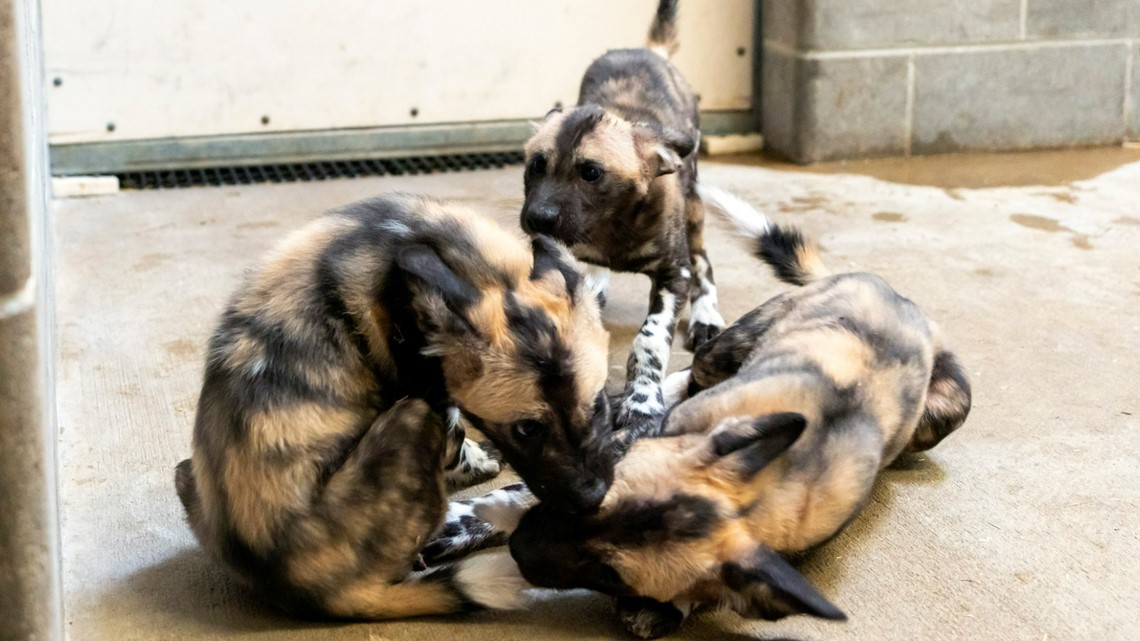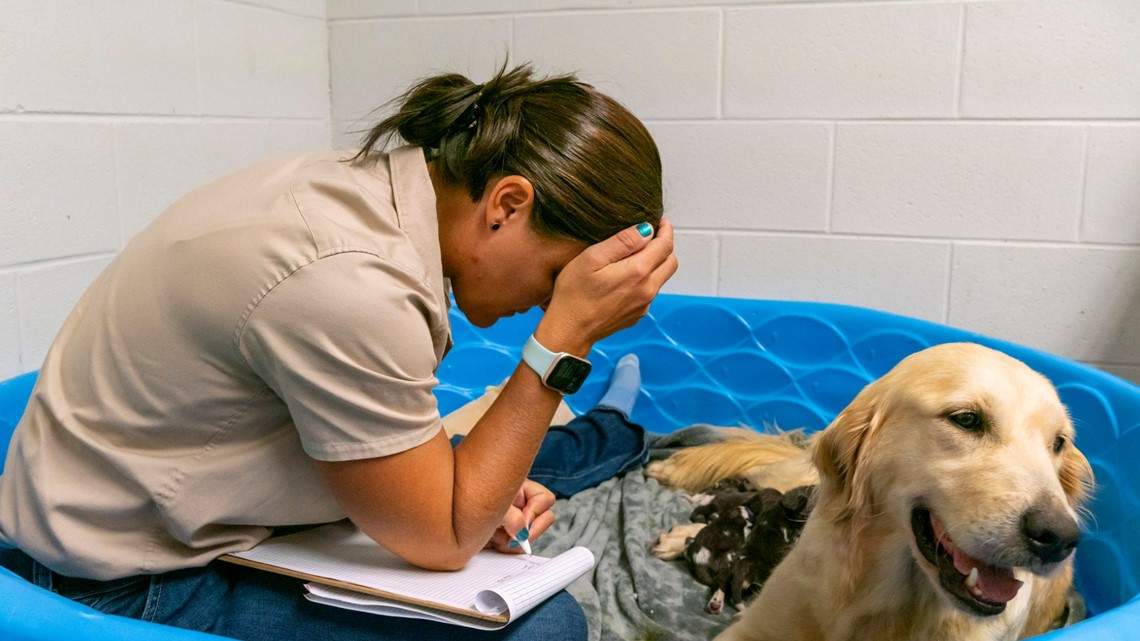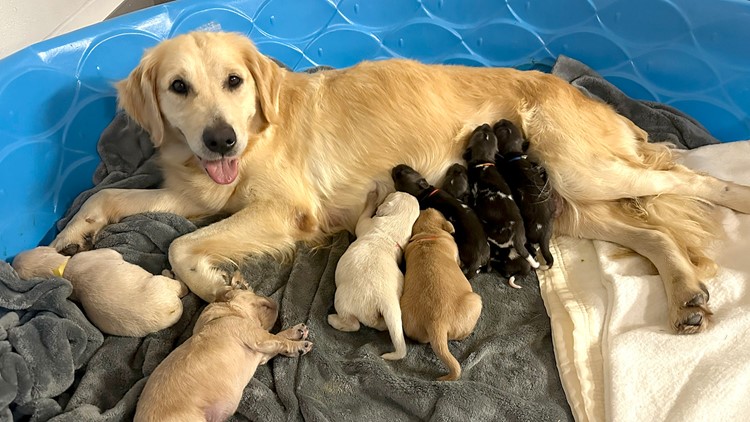POTAWATOMI PARK, Ind. — An Indiana zoo recently welcomed a litter of endangered African painted dogs. Only three survived thanks to an unlikely surrogate mother. While African painted dogs usually live with a pack of like-minded predators in the wild, the canine that is taking care of them at the zoo is a golden retriever.
Potawatomi Zoo announced last week that eight pups were born at the zoo in September. But their parents, Bleu and Maurice, were not caring for the babies, the South Bend zoo said in a news release.
"Within 12 hours of the puppies' birth at the Potawatomi Zoo, the Animal Care team could tell that the pack would not be able to successfully raise the puppies," the zoo said. "Bleu, an inexperienced mother, was not caring for her pups the way she should have, and Maurice was following her lead."
So the zoo's staff consulted professionals that help develop breeding plans for African painted dogs in the U.S. There are less than 7,000 adult painted dogs in the wild and they are considered endangered due to human-wildlife conflict, habitat fragmentation and disease, the zoo says.


The staff at zoos usually try to remain hands-off so packs can raise pups like they do in the wild. This is usually successful, and pups get to "learn the complex social structure of their species," the zoo says.
But in this case, the group determined the staff would have to hand-raise the litter – with the help of another animal.
Instead of bottle feeding the pups, the group recommended finding a surrogate dog to help nurse them, since they are usually raised in a canine social structure.
The Indiana Council for Animal Welfare connected the zoo with a golden retriever named Kassy who had recently given birth and was producing milk that she could feed to the painted dog pups, too.
Kassy came to the zoo with her own puppies and immediately took in the painted dog pups as her own.
While she began to nurse the pups, the first week of their lives was "difficult," and the care team worked 24 hours a day, the zoo said.
"As is common with baby animals, some of the of the painted dog pups weren't strong enough to survive, despite the dedicated attention Kassy and the Zoo staff gave them, but three did," the zoo said.
They aren't named yet, but they are calling the surviving pups Blue, Red, and Orange — the colors used to track them since birth.
The zoo is creating a home for the three pups next to the adult painted dogs at the zoo. They decided against integrating them with the other painted dogs because the older ones "didn't display suitable positive interest in the puppies, so the plan was changed." They plan is to reintegrate them with others when they get older.
"It has been an emotionally exhausting and challenging journey for the team, but it is the Zoo's mission to work toward the preservation of wild species," the zoo said. "Sometimes the journey is smooth and sometimes it takes extraordinary measures. These three healthy, active pups are just the start of this story, and the Zoo hopes to share more positive updates of their milestones in the future."


Also known as African wild dogs or African painted wolves, this species is native to sub-Saharan Africa and lives in big family groups that are led by a dominant male and female, according to the zoo.
They are small – about 29 to 43 inches long – but they can run up to 44 miles per hour hunt bigger prey like antelope, according to International Fund for Animal Welfare. They work together with their pack to coordinate hunts, and they're successful at it, with 60% of their hunts ending in catches.
Now at 11 weeks old, the pups are thriving under Kassy's care.
"We're looking forward to getting them in their own space where they can learn to be painted dogs from their family," the zoo said.



